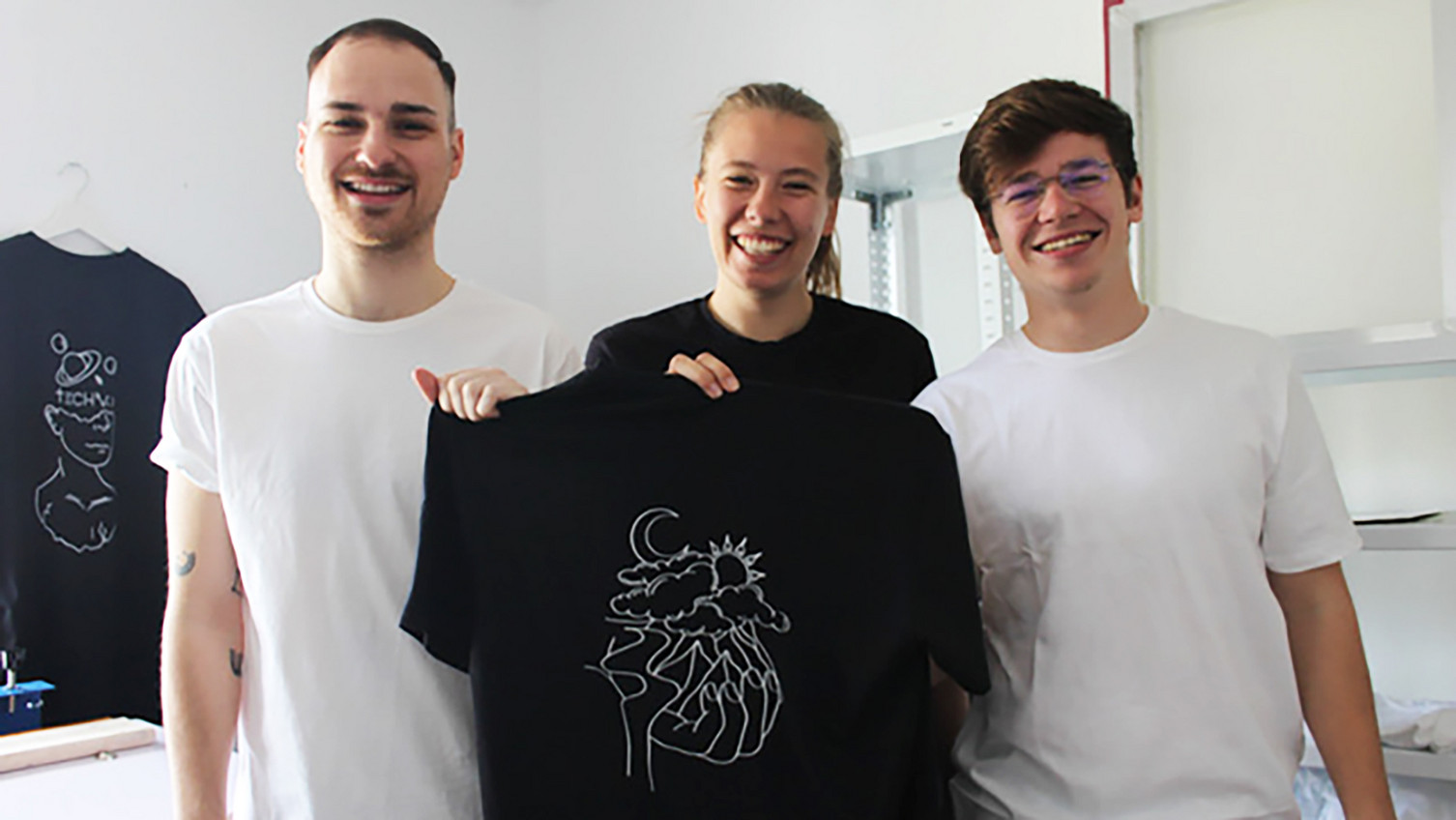Leuphana Start-up: MANGONUMBERFIVE - Rethinking the Fashion Industry
2021-06-21 Tom Haverland, Lina Rehfeldt and Jascha Klatt want to contribute to a positive fashion revolution. To this end, they founded the sustainable fashion label MANGONUMBERFIVE last year together with other Leuphana students. Their goal is to rethink fashion.
“The fashion world is a prime example of an unsustainable industry, which we want to counteract," says founder Haverland. The MANGONUMBERFIVE team considers fashion to be identity-forming, especially for young people. Therefore, it is important to produce fashion in harmony with nature. Through their interdisciplinary studies at Leuphana College, the founders have been confronted with social, ecological, and economic sustainability. "Even though the reasons for founding are more deeply rooted in us, Leuphana has provided us with a lot of help and inspiration. The start-up bases their fashion on the Cradle-to-Cradle principle, which was founded by Michael Braungart, professor of eco-design. "The mission is to rethink existing products." The fashion start-up aims to produce in such a way that abrasion and wear products are either returned to nature as nutrients or can be reused as technical nutrients "forever".
To enable a Cradle-to-Cradle standard, MANGONUMBERFIVE uses only organic cotton for its products. In production, the use of chemicals and water consumption is reduced to a minimum. The final product must be biodegradable: "It was important to us to have a product that can be returned to nature after use. Our paints, for example, are made of biodegradable, Cradle-to-Cradle Platinum certified plastic," Haverland says.
"Transparency plays a big role in consumer decisions these days. Unfortunately, it often hides empty words," says team member Fabian Holst. For the founders, sustainability does not work without transparency. The fashion brand therefore cooperates with Retraced, a software based on blockchain. Retraced helps to validate the sustainability certificates and to trace the product path. "Buyers can thus understand exactly which route the product has taken and at which point in the supply chain what has been done. From the planting of the cotton to the finished T-shirt in the hands of the consumer."
In addition to biodegradable products and supply chain transparency, the team also relies on cooperation with artists specifically for the designs of the T-shirts. The creative industry has suffered greatly in the pandemic: "We want to make a positive contribution on our still small scale and support the creative self-realisation of artists. We should all work together for a sustainable future," Haverland suggests.

